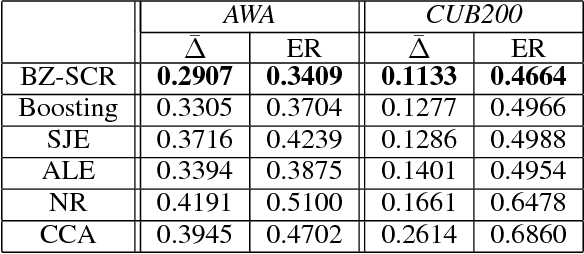Boosted Zero-Shot Learning with Semantic Correlation Regularization
Paper and Code
Jul 25, 2017


We study zero-shot learning (ZSL) as a transfer learning problem, and focus on the two key aspects of ZSL, model effectiveness and model adaptation. For effective modeling, we adopt the boosting strategy to learn a zero-shot classifier from weak models to a strong model. For adaptable knowledge transfer, we devise a Semantic Correlation Regularization (SCR) approach to regularize the boosted model to be consistent with the inter-class semantic correlations. With SCR embedded in the boosting objective, and with a self-controlled sample selection for learning robustness, we propose a unified framework, Boosted Zero-shot classification with Semantic Correlation Regularization (BZ-SCR). By balancing the SCR-regularized boosted model selection and the self-controlled sample selection, BZ-SCR is capable of capturing both discriminative and adaptable feature-to-class semantic alignments, while ensuring the reliability and adaptability of the learned samples. The experiments on two ZSL datasets show the superiority of BZ-SCR over the state-of-the-arts.
 Add to Chrome
Add to Chrome Add to Firefox
Add to Firefox Add to Edge
Add to Edge